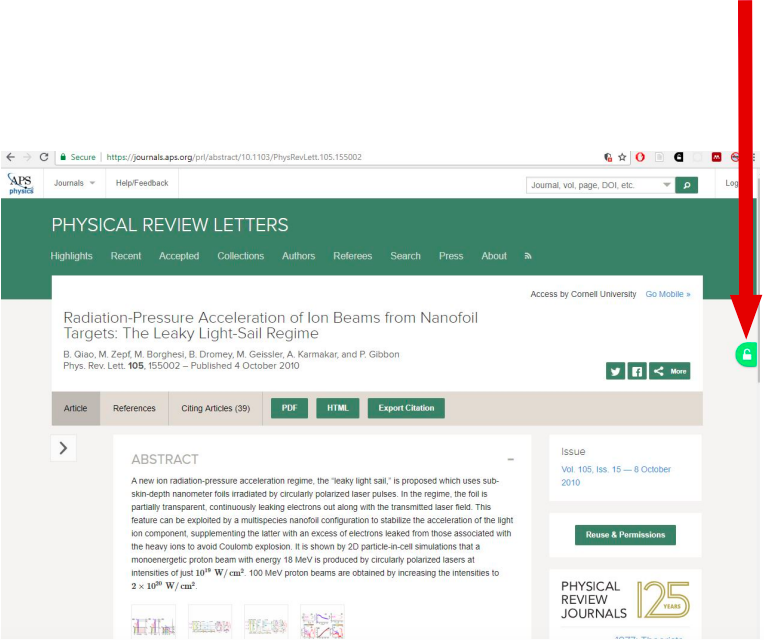What is Unpaywall?
Unpaywall is a browser plug-in that will tell you when a scientific journal article is available for free, either to you or anyone else. It indicates that the article is legally available through author archiving, a repository, or through Open Access.
Unpaywall is available for most major browsers and, once installed, it will present a simple “unlocked” icon when a given article is available without restriction. Just click the ![]() icon to access the full article.
icon to access the full article.

Visit unpaywall.org to learn more and to download the plug-in.
Information is not free. It’s not even cheap. There are many ideas about who should pay for publishing research results: Libraries, authors, readers, universities, governments, or publishers. Some solutions are better than others, but none are perfect.
What is Open Access?
Cornell obtains scientific journals by paying a subscription. The researchers who publish in these journals receive funding from grants or other sources, but they receive nothing for publishing their findings—only the publishers make money.
Open Access (OA) is a new, different model of research publishing: The reseachers themselves pay a fee to the journals, which then make the research freely accessible. It moves the cost from readers (or libraries) to authors.
This is not without controversy:
- The fees for publication in an OA journal can be very high.
- Some unscrupulous publishers produce OA journals simply to collect fees, doing very little editing or quality control.
- Libraries have not yet been able to realize significant savings from reduced expenses on journals.
What are preprint repositories?
Some fields use repositories (such as arXiv.org in physics or engrXiv.org in engineering) where authors can publish versions of their articles before publication in a regular journal. These sites include Open Science Framework (share.osf.io/sources) and Figshare (figshare.com). Anyone can read these preprints for free (although the repository itself is often underwritten by universities).
What is author archiving?
Some researchers insist on retaining copyright, and they publicly post a free copy of their own articles after publication in a journal (which normally takes full ownership). Some will accept the SPARC Author Addendum (sparopen.org), which grants partial rights. Not all journals are willing to let authors do this.
Questions? Email engrref@cornell.edu.